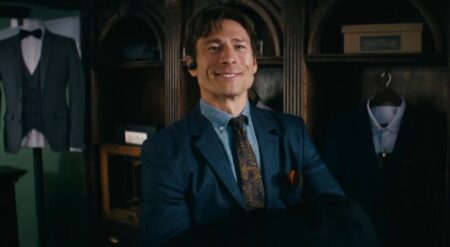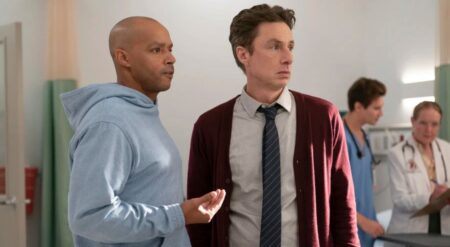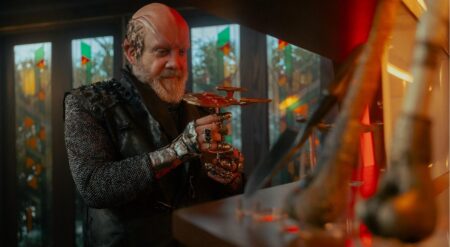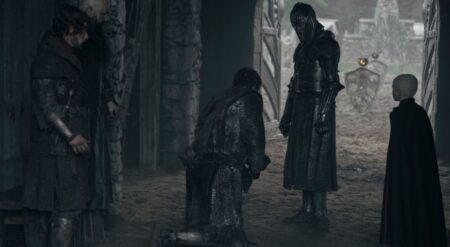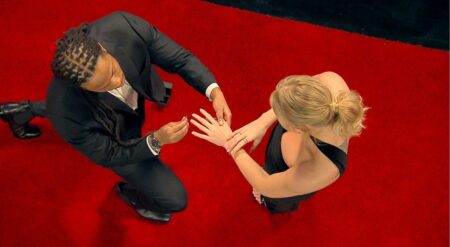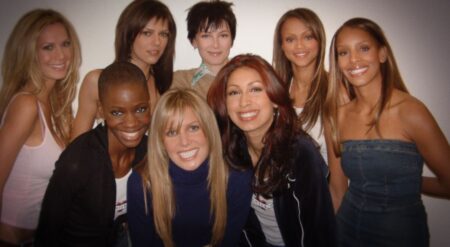More than any season before, The Boys Season 4 has been overt with its commentary on U.S. politics. While this has been interesting to watch, the escapism aspect of consuming media is lost when the events of the show become too real. It’s then up to the overarching story to root viewers back into the story. Unfortunately, The Boys Season 4 Episode 8 proves that the actual story was secondary to the commentary and the shock value deaths that have dominated the season.
This season has largely hinged on the fate of Ryan. Homelander (Anthony Starr) wants his son to live a better life than he was forced into, allowing Ryan to live freely as a superhero. For Butcher (Karl Urban), with his limited time left due to super cancer, he wants Ryan to not follow in his father’s footsteps. As the season has progressed, this looks more likely, and with Homelander looking to control the country, time is certainly of the essence.
Homelander and Butcher go to extremes to achieve their actual goals — Homelander to be free of rules and control and Butcher unleashing his vengeance on supes everywhere. Both developments come suddenly and hinge on Ryan’s choices in The Boys Season 4 Episode 8. If we had more time with Ryan’s character it might hit harder. Instread it just makes all of their posturing for Ryan’s sake take away from their emotional development. This is especially true when Butcher is concerned.
Ryan’s character is relegated to brief moments of whiny teenage antics. Despite seeing his dad act tyrannically with Vought employees, Ryan is shocked to learn the truth about Homelander. This feels odd, especially considering he had just taken a stand against Vought in the previous episode. Ryan’s reaction to the new information makes him the same naive kid we were introduced to earlier. What should be a commentary on Ryan’s illusion of choice, explored through multiple characters this season, comes off as “Well, maybe they should have killed him.”
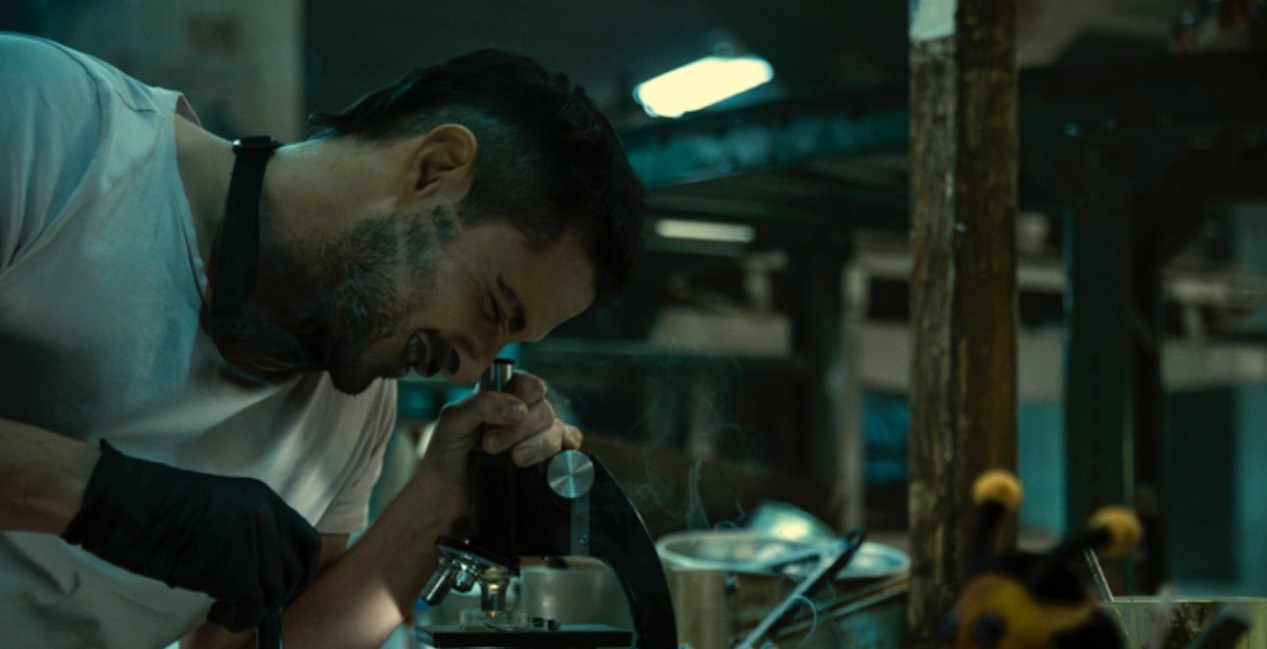
Further, the will-they-won’t-they dynamic between Frenchie and Kimiko (Karen Fukuhara) feels rushed and poorly executed. One minute Frenchie (Tomer Capone) is with his former boyfriend, then next he is in jail, and then they are together in The Boys Season 4 Episode 8. For a relationship that has been building for seasons, it feels like a disservice to make their first kiss happen amidst the episode’s most heated moments. This treatment does a disservice to both characters, especially Kimiko, who has been sidelined to facilitate Frenchie’s backstory.
When Kimiko was sidelined for Frenchie’s past to resurface, she had to deal with her own past alone. Given her super regeneration, the writers seem fine using her for gruesome shock-value scenes throughout much of the season. To make matters worse, this trained killer is nerfed in this The Boys Season 4 Episode 8 so that Starlight can finally show she’s more than just a light show.
In one of Kimiko’s most important missions to protect the president from the shapeshifter, she is easily beaten. Meanwhile, Starlight quickly dispatches the shapeshifter despite being locked away for ten days. While Starlight’s reclaiming her power is great, doing so at the expense of Kimiko’s character feels like a disservice to all the work put into Kimiko’s development.
In a bright spot in The Boys Season 4 Episode 8, the shapeshifter pretending to be Annie offers some of the best commentary on the superheroes since the season focused on the political. With the shapeshifter’s ability to gain the memories of those they imitate, they confront Annie with her past. Erin Moriarty delivers a standout performance during these scenes as she pulls double duty. However, as quickly as the shifter is introduced, they are gone leaving their presence ultimately unnecessary in a season of only eight episodes.
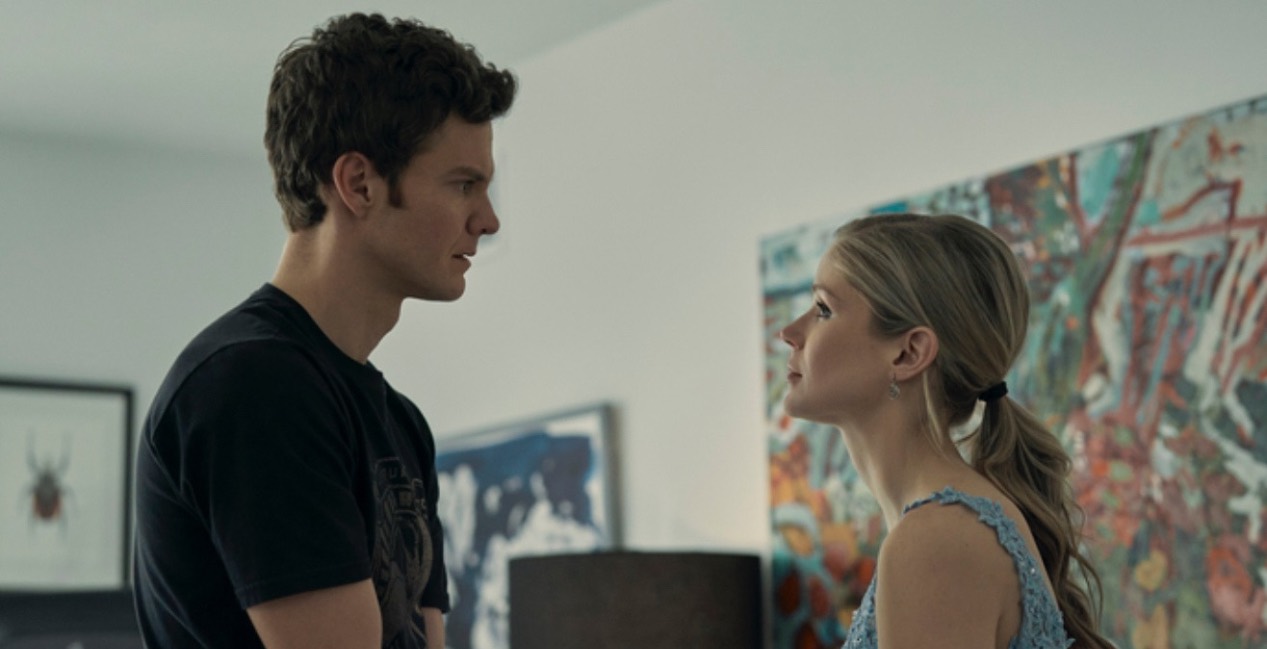
Further, Jack Quaid continues to shine as Hughie, who strives for a non-violent solution and provides poignant commentary on the nation’s future. Amidst the chaos, Hughie remains a moral compass, delivering heartfelt speeches that resonate deeply. His character development throughout the season stands out as a beacon of hope and rationality in a world increasingly dominated by violence and extremism. Hughie’s attempts to steer the group towards a path of non-violence highlight the show’s potential for meaningful commentary, even if it often gets overshadowed by shock value moments.
The Boys Season 4 Episode 8 ends by setting up the recently announced final season. With the team fractured and their efforts seemingly in vain, the focus shifts to hyping Season 5. The Boys’ actions throughout the season appear to have been for naught, as Homelander gains more power and the Seven solidify their control. This abrupt shift in focus leaves the current season feeling incomplete and more like a parody than meaningful commentary.
This sense of incompletion is exacerbated by the splintered state of the characters. A-Train’s departure and the Seven’s systematic elimination of any opposition further diminish the impact of the Boys’ struggles. Homelander’s acquisition of a supe army and the reveal that Sage had the answers all along undermine the protagonists’ efforts. The show’s tendency to prioritize political commentary over narrative cohesion makes the season feel disjointed and less impactful.
The Boys Season 4 Episode 8 struggles to balance its political commentary with its narrative, resulting in an episode that prioritizes shock value over character development. While there are standout moments and performances, particularly from Jack Quaid and Erin Moriarty, the overall execution leaves much to be desired. With the promise of a final season, there is still hope for a fitting conclusion that honors the show’s potential and provides a satisfying end to the story.
The Boys Season 4 Episode 8 is streaming now on Prime Video.
The Boys Season 4 Episode 8
-
Rating - 6/106/10
TL;DR
The Boys Season 4 Episode 8 struggles to balance its political commentary with its narrative, resulting in an episode that prioritizes shock value over character development. While there are standout moments and performances, particularly from Jack Quaid and Erin Moriarty, the overall execution leaves much to be desired.


